December 2016
Conference presentations: Society for Free Radical Research Australasia
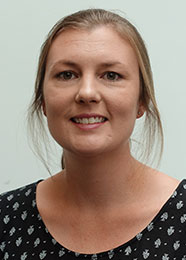
PhD student Teagan Hoskin
Five Centre for Free Radical Research staff and students attended the 2016 Society for Free Radical Research Australasia Conference on the Gold Coast, Australia in early December.
PhD students Teagan Hoskin and Kate Vick were recipeints of SFRRA Young Investigator Travel Awards.
Oral presentations:
- Calprotectin oxidation occurs at inflammatory sites and impacts on its biological function – Teagan Hoskin
- Exploring the relationships between ascorbate, hypoxia and cancer: oxidant, antioxidant or enzyme co-factor? – Professor Margreet Vissers
- Redox-relay between Prx2 and CRMP2: implications for the role of oxidative stress in neurological disease – Professor Mark Hampton
Poster presentations:
- Expression and redox state of cytosolic and mitochondrial peroxiredoxins in the NCI-60 panel – Kate Vick
- Importance of timing: The link between reactive oxygen species and the formation of neutrophil extracellular traps – Morgan Jones
- Peroxiredoxins as markers of oxidative stress in circulating blood cells – Professor Mark Hampton
Public Lecture: Vitamin C for the prevention and treatment of disease.
Principal Investigator Dr Anitra Carr gave a public lecture to the Geraldine U3A on Vitamin C for the prevention and treatment of disease.
November 2016
Conference presentations: AussieMit 2016
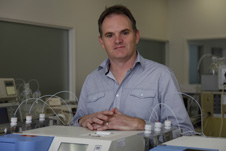
Professor Mark Hampton
Professor Mark Hampton and Dr Andree Pearson attended the 2016 AussieMit conference in Sydney, Australia.
Professor Hampton spoke at the conference held at the Kolling Institute of Medical Research about Peroxiredoxins as markers of mitochondrial oxidative stress.
Dr Pearson presented a poster at the conference.
AussieMit is a biennial Australian conference for mitochondrial research.
Oral presentation: D4 Conference
Professor Margreet Vissers was invited to speak at the Diagnostics, Drugs, Devices, Discovery (D4) Conference at the Forsyth Barr Stadium in Dunedin.
Professor Vissers discussed Ascorbate as an anti-cancer therapy? Investigations into feasibility and potential mechanism of action.
Conference presentations: Society for Redox Radical Biology and Medicine
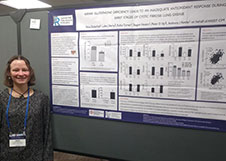 Three Centre for Free Radical Research staff, along with two PhD students attended the Society for Redox Radical Biology and Medicine (SfRBM) 2016 conference from 16-19 November 2016.
Three Centre for Free Radical Research staff, along with two PhD students attended the Society for Redox Radical Biology and Medicine (SfRBM) 2016 conference from 16-19 November 2016.
Dr Nina Dickerhof was a recipient of a Young Investigator Travel Award for her poster presentation.
Professor Christine Winterbourn gave two talks at the conference on Oxidants, free radicals and redox reactions in biology and Positives and negatives of oxidant formation by neutrophils.
Our delegates also presented seven posters:
- Glutathione deficiency and neutrophil-mediated oxidative stress in the lungs of children with cystic fibrosis – Dr Nina Dickerhof
- Peroxidasin-catalyzed oxidative modifications of proteins in the extracellular matrix – Bee Bathish
- Peroxiredoxins as markers of oxidative stress in circulating blood cells – Stephanie Moran
- Inhibition of neutrophil apoptosis and initiation of an autophagy-like process in hypoxia and effects of neutrophil function – Professor Margreet Vissers
- High-dose ascorbate administration increases tumor ascorbate levels and decreases hypoxia-inducible factor-1 activity and tumor growth in mice – Professor Margreet Vissers
- Thioredoxin reductase 1 directly protects protein tyrosine phosphatase 1B from inactivation by H2O2 – Professor Christine Winterbourn
- Interaction of peroxiredoxin 2 with collapsing response mediator protein 2 – Professor Christine Winterbourn
Oral presentations: Department of Pathology Symposium II
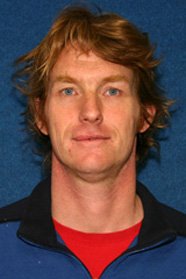
Dr Rufus Turner
Dr Rufus Turner was awarded the Runner-up Best Talk Prize at the second Department of Pathology Symposium.
Dr Turner also came third in the Department's Limerick Competition which was held in conjunction with the symposium.
The departmental symposium was held on 17-18 November in the Beaven Lecture Theatre and presenters were invited to speak on any topic of their choice – science or otherwise.
The symposium featured oral presentations from six Centre for Free Radical Research staff:
- The power of numbers – Dr Rufus Turner
- Waiting for the waves – Dr Andree Pearson
- Mad science – Dr Simone Bayer
- This one's for the boys – Dr Juliet Pullar
- Mindset: airy fairy pop psychology or real science? – Dr Louise Paton
- Research in a small tower: perspective of a new inhabitant – Dr Abel Ang
October 2016
UORG funding success for free radical professor
Principal Investigator Professor Mark Hampton has been awarded almost $80,000 over two years from the latest University of Otago Research Grant funding round.
The funded project will investigate oxidative stress and ageing in the Dunedin study.
Oral presentation: International Meeting of Hypoxia and Oxidative Stress
Professor Margreet Vissers travelled to Jakarta, Indonesia to speak at the International Meeting of Hypoxia and Oxidative Stress held on 26-27 October 2016.
Her presentation was about Exploring the relationship between hypoxia and vitamin C in cancer.
September 2016
Free radicals at the Health Research Open Day
The Centre for Free Radical Research took the opportunity to showcase our research and laboratories to the public at the UOC Health Research Open Day on Sunday, 18 September.
We took groups of people through our laboratories each hour during the afternoon and had interactive stands set up in the foyer.
Dr Nina Dickerhof discussed her research with people taking a tour of the Denis Stewart Pathology Museum.
We also had two PhD students give three minute presentations in the Rolleston Lecture Theatre. Bee Bathish discussed why you've Gotta love your oxidants and Emma Spencer spoke about Targeting cancer cells with compounds from nature. Professor Tony Kettle presented at the Research Showcase which was also held in the Rolleston Lecture Theatre.
Free radical researcher awarded the first Pathology Best Paper Award
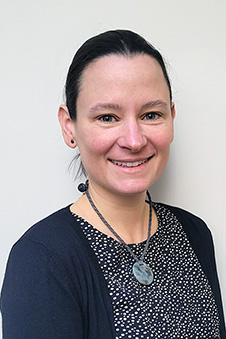
Dr Nina Dickerhof
Dr Nina Dickerhof has been awarded the first Inaugural Pathology Best Early Career Paper Prize for the article, Macrophage migration inhibitory factor (MIF) Is rendered enzymatically inactive by myeloperoxidase-derived oxidants but retains its immunomodulatory function, which was published in Free Radical Biology & Medicine.
Dr Dickerhof's paper describes a novel regulatory mechanism for macrophage migration inhibitory factor (MIF), a protein that plays an important role in our body's inflammatory response. During inflammation, neutrophils produce reactive oxidants to kill invading pathogens.
The paper shows that these oxidants also modify MIF. This is relevant because the site of modification influences the binding of MIF to its biological receptor. Furthermore, oxidatively modified MIF may also be a marker of neutrophil activation during inflammation.
This paper was the result of a fruitful collaboration with the laboratory of MIF expert Jürgen Bernhagen at the RWTH Aachen University in Germany.
Lisa Schindler, a student from the Aachen group visited the Centre for Free Radical Research for six months in 2014 and worked with Nina on the MIF project. She is currently undertaking a PhD at the LMU Munich and is investigating the contribution of the modified MIF discovered in Dr Dickerhof's paper to heart disease.
The winning paper:
Dickerhof, N., Schindler, L., Bernhagen, J., Kettle, A. J., & Hampton, M. B. (2015). Macrophage migration inhibitory factor (MIF) Is rendered enzymatically inactive by myeloperoxidase-derived oxidants but retains its immunomodulatory function. Free Radical Biology & Medicine, 89, 489-511. doi: 10.1016/j.freeradbiomed.2015.09.009
Public Lectures: Vitamin C
Professor Margreet Vissers gave two public lectures during September on Vitamin C.
The first lecture was given at the Cancer Society on 15 September and was entitled, Vitamin C – Investigating the mechanism of action.
Her second lecture, Vitamin C in sickness and in health, was on 21 September at the Redwood Ladies Probus Club.
August 2016
CMRF funding success for free radical researchers
 Two Centre for Free Radical Research staff have been awarded research grants in the Canterbury Medical Research Foundation's latest funding round.
Two Centre for Free Radical Research staff have been awarded research grants in the Canterbury Medical Research Foundation's latest funding round.
Dr Andree Pearson has received funding to investigate mitochondria and ageing.
Dr Anitra Carr will use her funding for a project on intravenous vitamin C and sever sepsis outcomes.
Oral presentation: UOC Research Seminar Series
PhD student Masuma Zawari spoke at the UOC Research Seminar Series on Monday 15 August in the Beaven Lecture Theatre.
Her presentation was entitled, Isothiocyanate bioavailability and biological effects.
May 2016
HRC Hercus Fellowship for free radical researcher
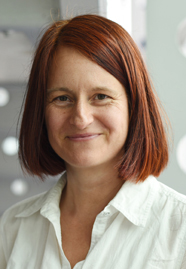
Dr Anitra Carr
Dr Anitra Carr has been awarded a $500,000 Sir Charles Hercus Health Research Fellowship for promising emerging researchers.
Dr Carr will undertake New Zealand's first study of vitamin C's potential as a treatment for intensive care patients with sepsis.
She says sepsis is the main cause of death in intensive care patients. Rates are increasing and treatment options for the life-threatening condition are limited. Patients with severe sepsis often develop cardiac dysfunction and dangerously low blood pressure (known as septic shock) and are given drugs to stabilize their cardiovascular function.
Dr Carr will carry out a clinical trial in Christchurch where people with sepsis are given the vitamin to see if this intervention results in a better recovery or survival. She will be trying to find out whether the positive biological effects of vitamin C translate into an improvement in patient outcome, which has been reported in a smaller study overseas. Her study will also involve comparing vitamin C levels with severity of illness and whether this contributes to progression of sepsis.
April 2016
Oral presentations: Department of Pathology Symposium I
Dr Nina Dickerhof was awarded the Best Talk award at the first Department of Pathology Symposium for her talk on The science of mountaineering.
Dr Dickerhof was one of seven staff from the Centre invited to speak on a topic of their choice at the departmental symposium held on 31 March-1 April.
All presentation details:
- The science of mountaineering – Dr Nina Dickerhof
- What happens when I prick my finger while working in the garden? – Dr Healther Parker
- Hypothiocyanous acid; life or death in the endothelium – Dr Stephanie Bozonet
- Aspirin – hidden talents of an old favourite – Dr Louisa Forbes
- Life cell imaging microscope – Dr Andreas Konigstorfer
- Molecular mechanisms of redox signalling through protein tyrosine phosphatases – Dr Markus Dagnell
- Genetic modifications of cultured cells – Dr Andrea Betz
March 2016
Press articles: Bold approach in science sector is essential to boost NZ's innovation
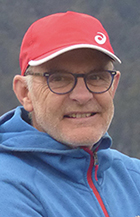
Prof Tony Kettle
Professor Tony Kettle has written two opinion pieces about the current state of science funding in New Zealand. They both featured in Fairfax newspapers including The Press and stuff.co.nz in late March and early April 2016.
The first piece entitled, Bold approach in science sector is essential to boost NZ's innovation, discusses the impact inadequate investment in science has on the country's ability to develop an innovative economy.
Professor Kettle points out that success rates for funding from the Health Research Council and the Marsden Fund currently hover below 10 per cent.
In the second piece, The Harvard of agriculture will take Harvard-like funding, Professor Kettle argues that serious money has to be invested into New Zealand universities if the country is going to have the agricultural equivalent to Harvard that Prime Minister John Key dreams of.
Both of Professor Kettle's articles can be read online:
- Bold approach in science sector is essential to boost NZ's innovation
- The Harvard of agriculture will take Harvard-like funding
The power of vitamin C
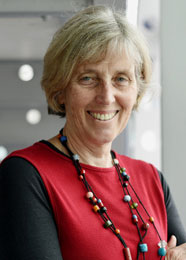
Prof Margreet Vissers
Professor Margreet Vissers and her vitamin C and cancer research featured in the March 2016 edition of Otago Magazine.
Professer Vissers and her team are about to begin the first study in people that investigates the effect of intravenous vitamin C treatment on tumour biology. This study will help determine a mechanism of action and has been made possible by the generous donations of many private donors.
“Many of those who have donated are affected by cancer, either themselves or someone close to them. They want information. They may have asked 'would taking vitamin C be good for me or my loved one?' and found there are no good answers to that question.''
The study will be of twelve patients with colorectal cancer and each will either get four daily injections of vitamin C or a placebo. Intravenous injection is the most commonly used method in “alternative” medicine and may result in better access for ascorbate into the difficult-to-access tumour environment.
“The patient will receive the vitamin C treatment prior to surgery. We will analyse tissue taken before and after vitamin C treatment to determine what the intervention has done – if anything – and if it affects any of the biological processes we know encourage tumour growth,'' Professor Vissers says.
Oral presentation: C4 Cancer Research Workshop
PhD student Kate Vick spoke at the Canterbury Comprehensive Cancer Centre's (C4) seventh Cancer Research Workshop in the Beaven Lecture Theatre, UOC on 15 March.
Her presentation was on Oxidant and antioxidant balances in cancer cells.
February 2016
UOC Teaching Award for free radical professor
Professor Margreet Vissers was a recipient of a UOC Teaching Award at the University of Otago, Christchurch's Academic Welcome.
The award recognises Prof Vissers' contributions to postgraduate teaching.